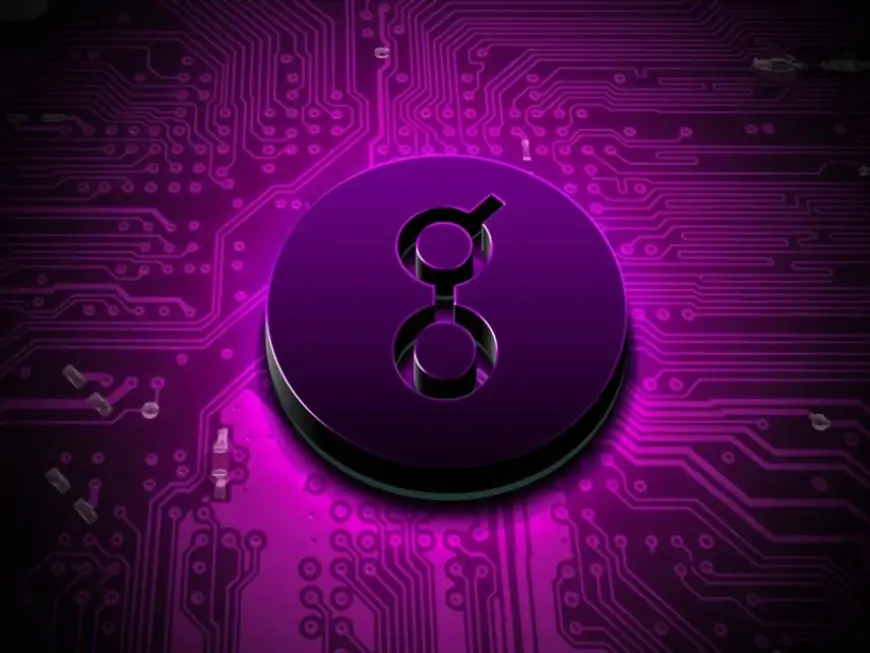Golem (Glm) review: Is Golem a good investment?
Discover the potential of Golem (Glm) in this insightful review. Explore its features, benefits, and more.

Our Verdict
Our Verdict
Golem (GLM) is a decentralized marketplace for computing power, often referred to as a "decentralized supercomputer." It leverages blockchain technology, specifically Ethereum, to create a global network where users can rent out their idle computational resources or purchase computing power from others. At its core, Golem aims to democratize access to computing resources by enabling individuals and organizations to harness excess capacity and put it to productive use. This can range from rendering CGI graphics and conducting scientific simulations to machine learning tasks and data processing.
 Pros
Pros
- Scalability
- Cost-effective
- Privacy and security
- Decentralized computing
 Cons
Cons
- Complexity
- Market volatility
- Network latency

Starting price
$0.5185Decentralized computing marketplace
YesGLM token utility
GLM serves as the native utility token of the Golem networkGrasping the fundamentals of Golem
Let's delve into the fundamentals of how Golem operates.
Golem serves as a decentralized global marketplace for computing power, tapping into spare processing capacity from computers worldwide.
Its structure revolves around two core elements: requestors and providers. Requestors seek computational resources, while providers offer their idle computing power in exchange for compensation.
The strength of Golem lies in its network effects. As more providers join, the platform gains access to increased computing resources, meeting growing demand and driving down costs for requestors while boosting profits for providers.
Moreover, being decentralized and open-source, Golem encourages widespread participation in its development and ensures freedom from censorship or central control.
Exploring Golem's utilization of blockchain technology
By integrating blockchain technology, Golem establishes a transparent and secure network, enabling individuals to share computing power reliably.
Blockchain integration ensures that all user transactions are logged on a decentralized ledger, guaranteeing an unalterable record of computations. Consequently, users can trust payment for their resources without centralized oversight.
Golem employs Ethereum's blockchain for its smart contract-based payment system, facilitating seamless and secure transactions. Smart contracts, embodying agreement terms in code, automate payment processes when users request computational power. This streamlines payments, eliminating the need for intermediaries like banks or escrow services.
Advantages of employing Golem for computational needs
Opting for Golem offers a cost-effective and efficient means to tap into computational power, capitalizing on a decentralized network to share resources and earn rewards.
Golem's affordability stems from its utilization of idle computing resources within its network, granting users access to robust computing capabilities at reduced costs compared to conventional cloud services.
Moreover, Golem boasts scalability benefits. Unlike cloud services that may encounter limitations due to infrastructure constraints, Golem's decentralized structure ensures virtually unlimited scalability, contingent upon participant nodes' availability.
This translates to enhanced flexibility for users in accessing computing resources, allowing them to adjust usage levels according to their requirements without concerns about infrastructure limitations.
Possible applications of Golem
Envision the advantages of a platform streamlining tasks like 3D graphics rendering, machine learning, and scientific computations, all while saving time and costs.
Golem's versatility extends to various industries, enhancing efficiency and affordability for complex tasks.
In creative sectors such as advertising, architecture, and media production, Golem accelerates rendering processes, enabling designers and artists to focus on content creation rather than waiting for computations.
In scientific research, Golem offers a cost-effective data analysis solution, eliminating the need for expensive hardware or cloud services. Its decentralized network ensures both affordability and data security.
Ultimately, Golem stands poised to transform computing across diverse fields, offering a distributed supercomputer accessible to all at a reasonable cost.
Earning GLM tokens as a contributor
Providers on the platform have the opportunity to earn tokens by offering their computer's unused processing capacity to those in need.
To become a provider, simply ensure your computer meets the specified hardware and software requirements, including at least 4GB of RAM and 20GB of free hard disk space, and runs on Windows, Linux, or Mac OS X.
Once these requirements are met, providers can begin earning GLM tokens by fulfilling computing tasks requested by users on the Golem network.
The token distribution model involves requestors compensating providers in GLM tokens for their computing services. This incentivizes providers to deliver quality services, as their earnings are tied to the amount and quality of work completed.
Moreover, providers can set their pricing for computing services based on market dynamics, enabling them to adapt to demand and supply fluctuations.














































